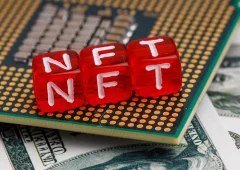Gemini Explores Potential IPO Amid Regulatory Shifts and Global Expansion
07.02.2025 18:00 1 min. read
Gemini is exploring the possibility of going public, with an IPO potentially happening later this year.
Although no final decision has been made, discussions with advisors are underway. The exchange, however, has not commented on the matter yet.
This move comes as more cryptocurrency companies are eyeing IPOs, fueled by a favorable political environment under the Trump administration’s pro-crypto policies. The Winklevoss twins, founders of Gemini, recently made headlines for donating Bitcoin to Trump’s campaign, further aligning themselves with this political shift.
Alongside Gemini, other crypto firms such as Bullish Global, backed by investor Peter Thiel, are considering their own public offerings.
Gemini’s IPO discussions follow a period of regulatory turbulence. The exchange recently settled a lawsuit with the CFTC, agreeing to pay a $5 million fine. This was part of a broader legal effort after being accused of misleading regulators over its Bitcoin futures contract.
Meanwhile, Gemini is shifting its focus internationally. While pulling out of the Canadian market due to regulatory challenges, it has expanded operations in Singapore, securing a license to offer digital payment services, capitalizing on the region’s crypto-friendly regulatory environment.
-
1
Here is Why the Fed May Cut Rates Earlier Than Expected, According to Goldman Sachs
08.07.2025 15:00 2 min. read -
2
What Brian Armstrong’s New Stats Reveal About Institutional Crypto Growth
29.06.2025 15:00 2 min. read -
3
Toncoin Launches UAE Golden Visa Program Through $100,000 Staking Offer
06.07.2025 12:04 2 min. read -
4
Donald Trump Signs “One Big Beautiful Bill”: How It Can Reshape the Crypto Market
05.07.2025 9:56 2 min. read -
5
Market Odds of a U.S. Recession in 2025 Drop in Half Since May
05.07.2025 18:30 2 min. read
U.S. Public Pension Giant Boosts Palantir and Strategy Holdings in Q2
According to a report by Barron’s, the Ohio Public Employees Retirement System (OPERS) made notable adjustments to its portfolio in Q2 2025, significantly increasing exposure to Palantir and Strategy while cutting back on Lyft.
Key Crypto Events to Watch in the Next Months
As crypto markets gain momentum heading into the second half of 2025, a series of pivotal regulatory and macroeconomic events are poised to shape sentiment, liquidity, and price action across the space.
Here is Why Stablecoins Are Booming, According to Tether CEO
In a recent interview with Bankless, Tether CEO Paolo Ardoino shed light on the growing adoption of stablecoins like USDT, linking their rise to global economic instability and shifting generational dynamics.
U.S. Dollar Comes Onchain as GENIUS Act Ushers in Digital Era
In a statement that marks a major policy shift, U.S. Treasury Secretary Scott Bessent confirmed that blockchain technologies will play a central role in the future of American payments, with the U.S. dollar officially moving “onchain.”
-
1
Here is Why the Fed May Cut Rates Earlier Than Expected, According to Goldman Sachs
08.07.2025 15:00 2 min. read -
2
What Brian Armstrong’s New Stats Reveal About Institutional Crypto Growth
29.06.2025 15:00 2 min. read -
3
Toncoin Launches UAE Golden Visa Program Through $100,000 Staking Offer
06.07.2025 12:04 2 min. read -
4
Donald Trump Signs “One Big Beautiful Bill”: How It Can Reshape the Crypto Market
05.07.2025 9:56 2 min. read -
5
Market Odds of a U.S. Recession in 2025 Drop in Half Since May
05.07.2025 18:30 2 min. read


